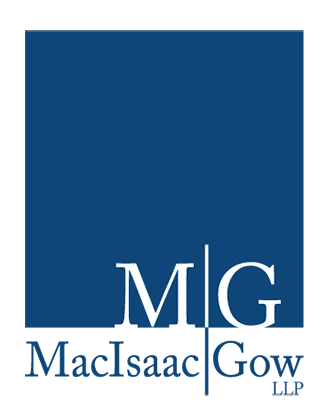The significant impact that self-driving vehicles will have on the future of transportation is undeniable. With the increasing adoption of autonomous cars, it is vital to understand how these advancements will impact car accident claims in Ontario, Canada.
At MacIsaac Gow LLP, we are committed to providing expert legal representation for personal injury cases, including those involving self-driving car accidents. Our team of experienced car lawyers understands the complexities surrounding autonomous vehicles and the unique challenges they present in terms of liability. In this blog post, we aim to provide a detailed overview of self-driving car accidents, their implications, and the legal landscape in Ontario, Canada.
The Evolution and Rise of Self-Driving Vehicles in Ontario
Self-driving cars have emerged as a disruptive technology, promising increased safety and efficiency on the roads. These vehicles utilize advanced sensors, artificial intelligence, and machine learning algorithms to navigate and make decisions without direct human intervention. As the development and deployment of self-driving cars continue to progress, it is essential to understand the implications they pose for accidents and the ensuing legal processes.
Ontario has positioned itself as a hub for connected and automated vehicle development, testing and deployment, with over 300 companies developing these technologies in the province. With companies like Uber, Waymo, and General Motors conducting extensive research and development, it is evident that self-driving vehicles are becoming increasingly prevalent on Ontario roads.
The Complexities of Self-Driving Car Accidents: Understanding Liability
Determining liability in self-driving car accidents can be challenging. Unlike traditional accidents where human drivers are typically held responsible, self-driving car accidents raise questions regarding the liability of various parties involved, including:
- Vehicle Manufacturers: Manufacturers can be held liable if the accident resulted from a defect or malfunction in the self-driving technology or its components.
- Software Developers: The creators of the autonomous software may face liability if the accident occurs due to programming errors, inadequate testing, or other software-related issues.
- Human Operators: In certain situations, human operators may still bear some responsibility if they fail to intervene or misuse the autonomous features when required.
Collecting and Analyzing Data
Data plays a crucial role in self-driving car accident claims, providing valuable evidence for liability determination. Autonomous vehicles are equipped with advanced sensors and data recorders that capture a wealth of information before, during, and after an accident. This data can include vehicle speed, acceleration, braking, sensor inputs, and even video recordings.
Black Box Data
Similar to airplanes, self-driving cars have black boxes or event data recorders that store valuable information about the vehicle’s operation. In the event of an accident, this data can be retrieved and analyzed to reconstruct the sequence of events leading up to the collision. The black box data can be a vital source of evidence in determining liability and establishing the facts surrounding the accident.
Legal Considerations in Self-Driving Car Accidents
Ontario’s Legal Framework
In Ontario, the legal framework surrounding self-driving car accidents is continually evolving to keep pace with technological advancements. The province has established guidelines and regulations to address autonomous vehicles’ testing, deployment, and insurance requirements. These measures aim to ensure public safety while promoting innovation and responsible development.
Negligence and Fault Determination
When it comes to self-driving car accidents, negligence can still play a significant role. Although the human operator may not have been actively controlling the vehicle at the time of the accident, their actions or lack thereof leading up to the incident could be deemed negligent. This includes failure to properly engage or disengage the autonomous mode when required or to exercise reasonable care while using the vehicle.
In Ontario, the Fault Determination Rules established by the Insurance Act govern the allocation of fault in car accidents. These rules provide a framework for insurance companies to determine who is at fault and to what degree. While autonomous vehicles introduce unique considerations, the Fault Determination Rules can still be applied to determine the liability of self-driving cars and other vehicles involved in the accident.
Seeking Legal Representation
Self-driving car accidents present unique challenges when it comes to determining liability and seeking compensation for personal injuries. Navigating and understanding the legal complexities of self-driving car accidents requires specialized expertise. At MacIsaac Gow LLP, we have extensive experience representing clients in motor vehicle accident cases. Our team of dedicated lawyers stays up to date with the latest developments in self-driving technology and the evolving legal landscape. We are committed to providing diligent and compassionate legal representation to help self-driving car accident victims seek the compensation they deserve.

